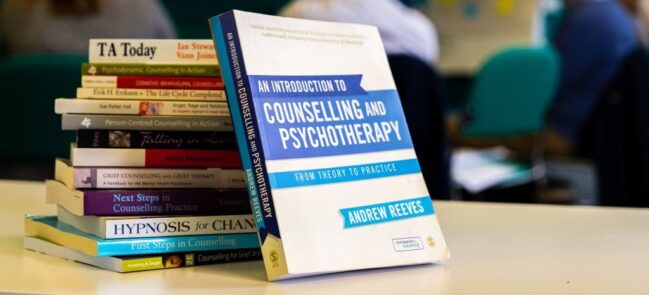Blog
The difference between counselling and psychotherapy
May 5, 2020
3 minutes, 34 seconds

Counselling and psychotherapy overlap in many ways. Both allow patients to share their troubles, whilst being listened to and supported by a trained professional in a safe environment.
People require counselling and psychotherapy for a wide range of different reasons. These may include those who are suffering from anxiety and/or depression, patients that have encountered a distressing or stressful situation, or those who are working through a bereavement, separation or other significant life transition.
Helping patients to express themselves, counselling and psychotherapy can help people to overcome difficulties in their lives, achieve personal goals, and improve the relationships they have with family, friends and colleagues.
That said, although there are similarities between counselling and psychotherapy, they are also distinctly different. Counselling is offered as part of the psychotherapy process and uses psychotherapeutic methods.
Ultimately, the main difference between these therapeutic communication treatments is the time it can take to see the benefits. For example, psychotherapy focuses on implementing long term treatment strategies, whereas counselling is time limited, with patients often determining with their therapist how many sessions are required from the offset.
Both aim to tackle many different emotional problems and difficulties.
Counselling
Millions of people around the world seek counselling for a whole range of issues. A type of talking therapy, counselling involves sharing what is troubling you in a comfortable, safe and supportive environment, with a trained professional.
Being able to express themselves freely and open up to a supportive ear, allows patients to overcome a wide range of issues, from grief and relationship problems, to other major life changes and significant transitions.
Counselling aims to tackle the feelings that patients are experiencing right now, by helping patients focus on behaviour patterns and understand how their actions and choices are having an impact on the way they feel.
For example, the issues that counselling tends to deal with include the challenges patients face on a daily basis at home or work, as well as traumatic life events such as a breakup, bereavement or divorce. Many counselling strategies have also been proven to help with confidence issues and long-term addictions.
Psychotherapy
Just like counselling, psychotherapy incorporates a range of different talking therapies, which aim to help patients overcome issues causing disruption to their daily lives.
However, the main difference between counselling and psychotherapy is that psychotherapy is a long-term therapy, designed to enable a deep understanding of a patient’s thought processes and emotions by delving deep into their past. For example, some psychotherapy treatments encourage patients to talk about their childhood in order to explore whether childhood experiences are now impacting on their adult life.
Psychotherapy also encourages people to really think about who they are as a person, what could be affecting their behaviours, and how they have become the person they are today.
This form of therapy can help with issues related to stress, bereavement, relationship breakdowns, sexual problems and addiction. Many people also seek psychotherapy support to help with mental health challenges such as depression, anxiety disorders, bipolar disorder, personality disorders and avoidant personality disorder.
Psychotherapy can also be practiced as a couple, as a family, or as a group. It encompasses the following forms of treatment:
- Integrative psychotherapy
- Psychoanalytic psychotherapy
- Existential psychotherapy
- Jungian psychoanalysis
- Acceptance and commitment therapy
- Dialectical behaviour therapy
All treatment forms explore feelings, beliefs and thoughts.
How to choose between a counsellor and psychotherapist
When choosing between a counsellor and psychotherapist, it’s important to consider the difference between the professions, the approaches they use and your individual circumstances.
It’s always a good idea to seek advice from your GP or a provider of these services to help you decide on the best method of treatment for you.
The main decision you’ll need to make is whether you think you require short-term or long-term support. For example, most people choose to see a counsellor if they have short term problems they need to address, such as help with coping with grief, support after a relationship breakdown, or help dealing with life adjustments or transitions.
On the other hand, people may see a psychotherapist if they have a problem that is having a profound impact on their life, for example if they are dealing with trauma, a chronic medical condition, a major anxiety disorder or reoccurring concerns.